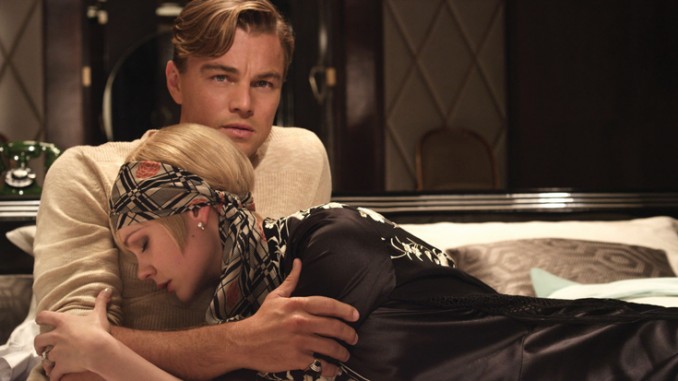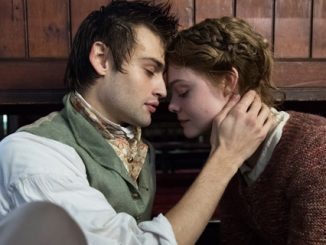
Do you believe in the green light?
A struggling writer (is there any other kind?) once lamented that no matter how hard they tried, emulating the prose of F. Scott Fitzgerald’s much loved 1925 masterpiece The Great Gatsby was impossible.
Argued by many to actually be the great American novel, The Great Gatsby is a celebration of concise and fluid writing that manages to tell an operatic tale of love and broken dreams with consummate simplicity. Impressively, it defined an era when technology and changing mores gave a glimpse into the decadence that can now be found in most first-world cities.
Not surprisingly, Baz Luhrmann’s cinematic interpretation – filmed partly in the Inner West’s own White Bay Power Station – was highly anticipated.
Never one to shy away from stylistic overkill, Luhrmann’s work is a visual riot told with a penchant for self-indulgence. For fans of the novel, the film was always going to be an experience worth having regardless of how it worked as a stand alone creation. However, for others it often felt forced.
Perhaps the problem was that it tried too hard to make us believe that the roaring twenties were crazy in the same way that 2013 is, when in reality unrestrained partying was then still for a privileged minority (even if the grimness of Myrtle and George Wilson’s existence in the valley of ashes juxtaposed the world beyond glittering parties).
Those brave enough to criticise the novel itself, claim it’s nothing more than a romantic soap opera and Fitzgerald’s style is frippery when compared to more earnest efforts from contemporaries like Edith Wharton, Sinclair Lewis and Marcel Proust.
But perhaps the biggest philosophical problem with The Great Gatsby is that Gatsby’s dream (the American dream?) was not some towering affirmation of humanity’s need to move forward and better itself but a deceptive masterpiece that masked a guy’s obsession with a vapid, old-money babe named Daisy.
We all know what it’s like to want something that we can’t have when it comes to love and lust, and in the end Gatsby’s dream is really to win back an unattainable woman. From fighting in the First World War to building a nouveau riche empire worth a million Sylvania Waters, Gatsby was someone wasting his energies rekindling a youthful affair that had, like strawberries, been tasty yet devoid of nutrition.
The Great Gatsby is a cautionary tale of living in the past, wasteful consumerism (the over production of new inventions was instrumental in initiating the Great Depression) and the injustices of class division in a supposedly classless republic.
But perhaps its best advice is that when reaching for a goal that proves to be elusive, it’s best if there’s more to it than just a pretty face.
Jason Dunne is an Inner West columnist and author of Everyone is Henry Miller.
The Great Gatsby is Jason Dunne’s second favourite novel behind Everyone is Henry Miller.
Spicy Inner West
Ciao asks, Inner Westies answer:
Was the great Mr Gatsby a romantic who tried to better himself for love or a sentimental fool chasing a woman he could never have?
“I love Gatsby, he’s the definition of a romantic! Daisy is a bitch, who plays along until it’s too late. How was he to know he was chasing a lost cause?”
– Adam, Surry Hills.
“It was a grand gesture that he reinvented himself for her but shouldn’t real love be about more than wealth and social standing?”
– Hali, Drummoyne.
“He changed his life out of a thirst for more. Daisy embodies who he wants to be – rich and high born. He loves her because she makes him feel accepted in that category. So I wouldn’t say he’s a sentimental idiot, but she’s a flaky cow. They are probably both too selfish to have deeply loved each other – it’s more of an indulgence of lust or infatuation.”
– Victoria, Petersham.
“He’s a fool for love but you can’t blame a guy for trying.”
– Dave, Stanmore.
“Gatsby was just a guy who built himself a romantic illusion to live by.”
– Maria, Five Dock.
“They both lived in iridescent bubbles that stuck together but couldn’t get through.”
– Joan, Leichhardt.
“It’s an age-old story; most people have felt what it’s like to fall in love with someone they couldn’t have, whether it’s because your families don’t approve, or you’re from different religions or nationalities. I think he was a romantic and I feel a bit sad for him.”
– Maitri, Five Dock.



Leave a Reply
You must be logged in to post a comment.